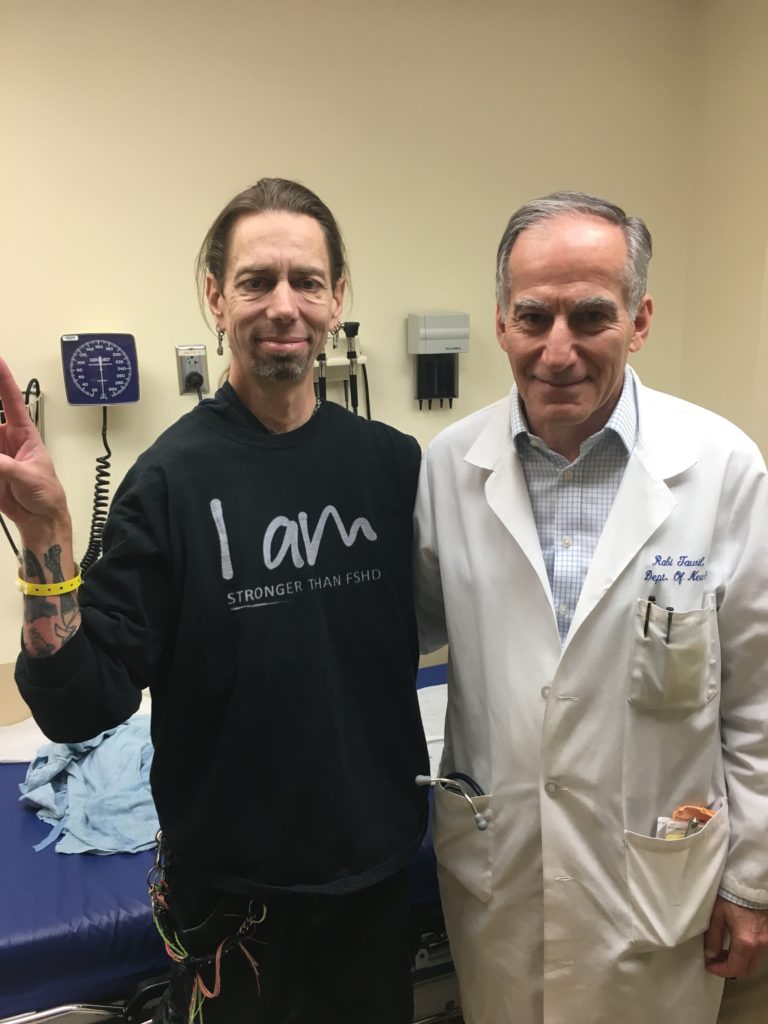
To crack the code of FSHD, patients are absolutely essential
All of the breakthroughs—the discovery of the genetic causes, understanding why some patients vary so greatly in the severity of their symptoms, teasing out the biochemical pathways that could point to future treatments—were made because patients stepped up to the plate.
Too often, we hear patients say they’ll volunteer when there’s a treatment. But we will never get to a treatment unless patients participate in fundamental research now. FSHD is uniquely human, so no laboratory mouse can ever fully model the disease. The genetic “package” that causes FSHD is found only in people. We owe an enormous debt to the patients who give DNA samples. Who submit to long interviews and exhausting physical tests. Allow a surgeon to cut out a small muscle sample. Who fight claustrophobia to lie in the narrow bore of an MRI machine.
Equally important are patients’ family members, both affected and unaffected, who provide the best experimental controls because of their shared genetic and environmental backgrounds. A parent or sibling who has very mild symptoms may hold the key to understanding the factors that protect against the full-blown development of FSHD symptoms in a more severely affected family member.
We are more hopeful today than ever before that a treatment is within sight. We cannot guarantee when that treatment will arrive, but here’s one thing we guarantee: If you volunteer for research, your participation will without question help move us a step closer to that day.
Scientific Overview of FSHD
Read the latest on wikipedia
Glossary of Scientific Terms
Intelligent orthotics step forward at the MIT Media Lab
During the 2014 biennial FSHD patient conference in Boston, the FSH Society arranged for a group to visit the MIT Media Laboratory, where Professor Hugh Herr leads a visionary team… Read More »
How the FSH Society drives FSHD therapy development
This infographic from our FY2017 Donor Report illustrates how the FSH Society is involved at every stage of the treatment development process. We invest strategically at key stages along the… Read More »
$133,254 awarded to FSHD Clinical Trials Research Network
The FSH Society has awarded a grant for a second year of support for the FSHD Clinical Trials Research Network (CTRN), through the coordinating center based at the University of… Read More »
FSH Society awards $690,894 in new research grants
A drug that helps muscles grow and regenerate. Molecules that occur naturally in our cells to repress DUX4, the “toxic gene” thought to cause FSHD. A deeper dive into why… Read More »






